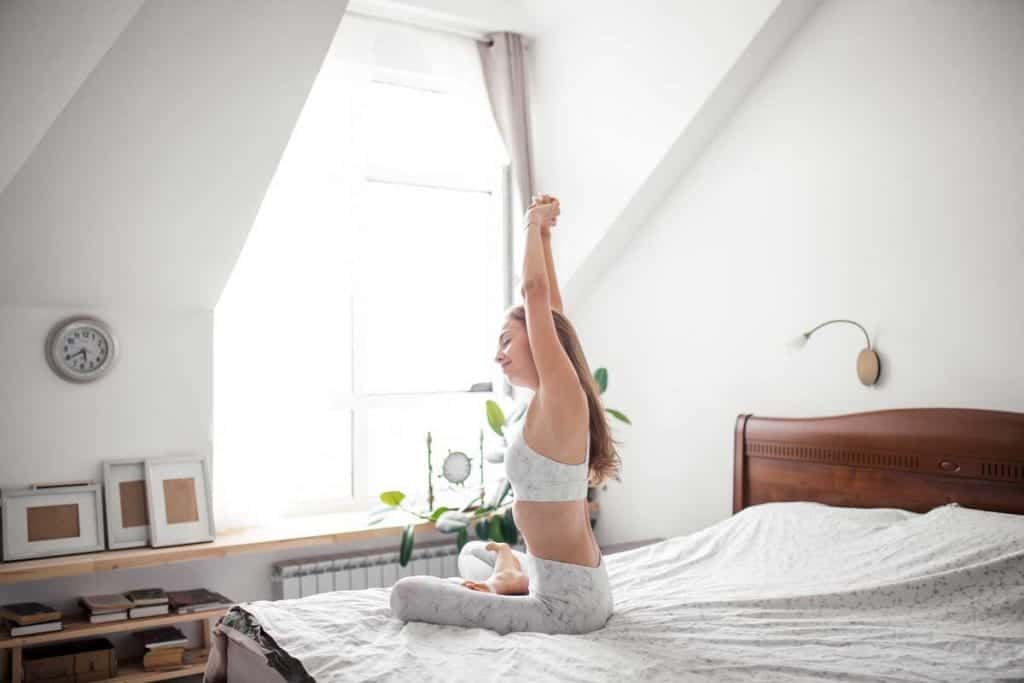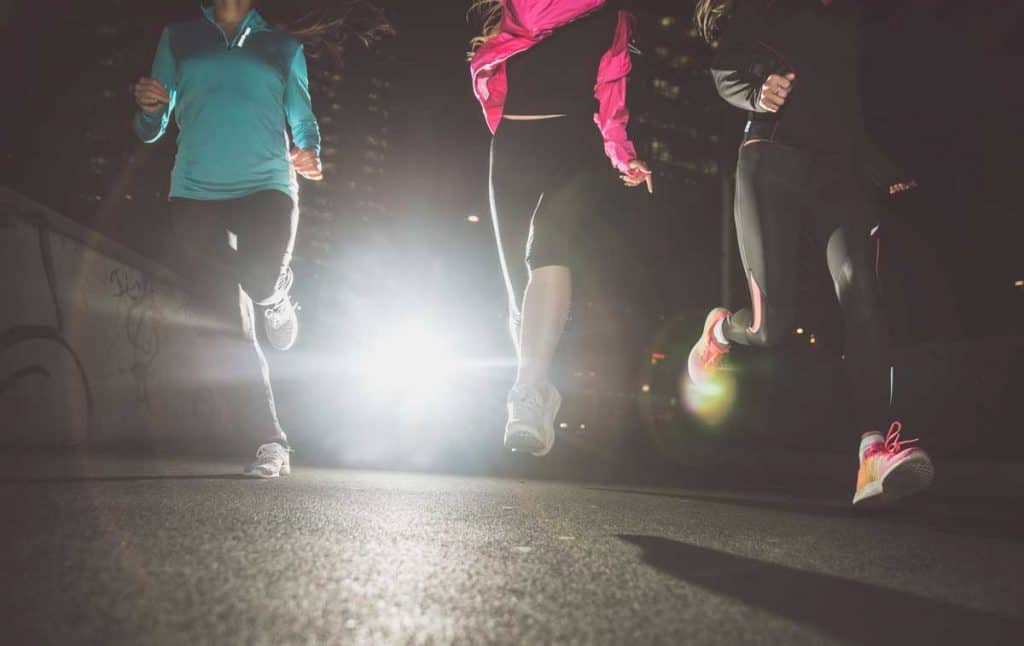
What’s the best time to exercise for better sleep?
Exercise has plenty of health benefits for you physically and mentally. It can help you lose weight, reduce anxiety and stress, and boost your immune system. What’s more, it promotes deep sleep. By now, you’re brimming with questions:
What kind of exercise improves sleep quality?
How long should I exercise?
A high-intensity workout can improve sleep, mood, and health. However, doing it in longer periods and at the wrong time can induce insomnia. As you see, timing your workouts can be complicated. Each person is different, and it’ll take a lot of guessing before you time your body right.
While that may be true, here are standard ways to check and time your exercise routine.
Sleep and exercise relationship
In a poll done by the National Sleep Foundation, it’s found that people who exercise more, nearly have a 70 percent chance of getting a good night’s sleep. Sedentary individuals have induced insomnia and likely have interrupted sleep at night. What’s more, dynamic exercises can help achieve deep sleep than low or moderate impact exercises.
The same research shows 2,600 people having a 65 percent improvement in rest quality. These individuals reported feeling energetic and less sleepy throughout the day. Another research shows inactive females who exercised for 30 minutes a day slept for an extra hour the next day.
Of course, getting fit and healthy can avoid sleep disruptions like sleep apnea, snoring, nocturia, and sleeping hot.

Morning workouts
Morning exercises have key benefits to sleep. It might even promote quality rest at night because it resets people’s body clock and regulates their circadian rhythm. A study concluded that those who exercise longer and harder in the morning had deeper and longer REM sleep, which is imperative to body restoration and growth. It is also seen to reduce blood pressure, cardiovascular diseases, and stress.
During sleep, your blood pressure lowers between 10 and 20 percent, which is necessary for muscle and organ restoration. A morning exercise triggers the same dip that helps optimized sleep in the evenings.
But, what’s the best time to exercise? Many people concluded that a walk or high-intensity exercise around 7AM can rejuvenate them during the day and induce better sleep at night. Exercising in broad daylight can boost a well-rounded sleep because sunlight can regulate one’s circadian rhythm.
Any exercise in mind?
For those who can’t stand hard-hitting workouts early in the morning, walking, yoga, stretching, or breathing exercises can stimulate the body. You can even limit yourself to 20 minutes’ worth of activity or divide them into 10 high-intensity workouts throughout the day.
Some note-worthy exercises include:
- Jumping jacks
- Jumping rope
- Hop skips
- Squats
- Lunges
- Sprints
- Walking or jogging
- High-intensity interval training (HIIT)

Afternoon exercises
Most people exercise in the afternoon, particularly every 2PM, after two hours from lunch. It’s the best time to exercise because, during this hour, your body temperature dips, making you more sleepy than usual. An exercise will jolt you wake awake making you feel energized.
What’s more, it’s during afternoons when the body produces more testosterone necessary for muscle restoration, growth, and strength. You can squeeze in HIIT training, provided you won’t go beyond 45 minutes. Vigorous exercises in late afternoons are fine as long as you do it two hours before you sleep.
What exercises to do
Weight exercises are best in the early afternoons to promote muscle growth and after-effect burn-out for better weight loss. Squeeze in a couple of deadlifts if you can or tricep dips to work on those arms.
Exercise in the early afternoons does not have a huge impact on sleep; nevertheless, it can keep you healthy and strong.
Some note-worthy exercises include:
- Bench press
- Curls, rows
- Burpees
- Pushups
- Planks
- Leg Lifts
- Donkey Kick
- Punches and kicks

Evening exercises
Nighttime workouts can disrupt sleep, especially when you do high-intensity workouts near bedtime. That’s because it boosts body temperature, release endorphins, and increases heart rate.
If you want to exercise in the evening, do low-impact workouts such as arm circles, leg lifts, squats, and lunges. Keep them under 20 minutes before 30 minutes to one hour of bedtime.
Instead of heavy workouts, why not try meditation, stretches, and breathing exercises to calm yourself down to sleep.
Creating a workout schedule just for you
Every person has a different workout schedule to reap the benefits of exercise and sleep-related issues. The one thing you have to understand is consistency. No matter when you do your workouts, it’s no good if you keep on missing them. So, the best time to exercise for better sleep the one time you’re able to stick regularly.
Even if you’re not a morning person, sticking to late afternoons or evenings is alright as long as it will not keep you awake at night. Finding your best workout schedule is a tried-and-tested matter.



